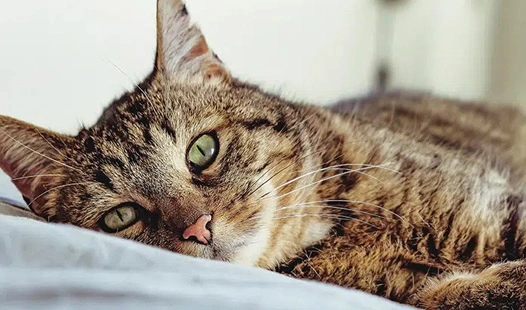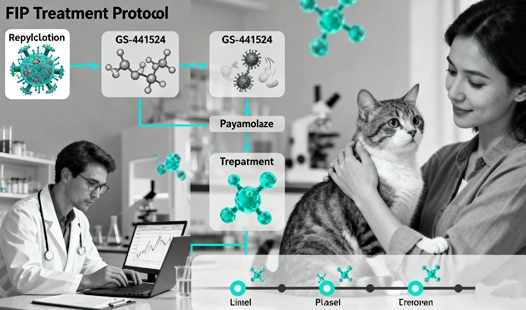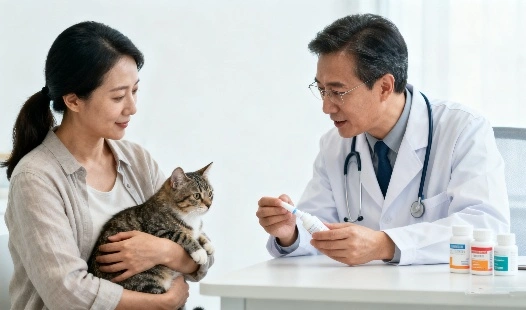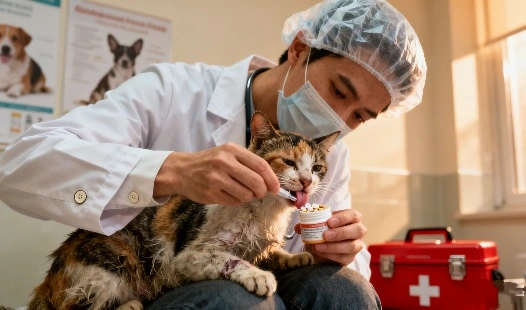How to prevent FIP relapse after finishing GS 441524 therapy?
A terrible illness known as Feline Infectious Peritonitis (FIP) strikes cats all over the globe. The development of GS 441524 FIP therapy has allowed for the effective treatment of FIP in a large number of cats. The key to long-term success, however, is staying sober when therapy is over. In order to decrease the danger of FIP recurrence and assure the continuous health of your feline buddy, this article will examine practical ways.


Post-treatment monitoring schedule
After completing GS 441524 therapy, it's essential to maintain a vigilant monitoring schedule to detect any signs of relapse early. Here's a comprehensive plan to keep track of your cat's health:
Weekly check-ups for the first month
During the initial four weeks post-treatment, schedule weekly veterinary visits to assess your cat's overall health and conduct necessary tests. These check-ups may include:
- Physical examinations
- Blood work (complete blood count and biochemistry panel)
- Abdominal ultrasounds
- Weight measurements
Monthly check-ups for the next three months
After the first month, transition to monthly check-ups for the following three months. These appointments will help track your cat's progress and ensure any potential issues are caught early. Your veterinarian may recommend:
- Continued blood work
- Fecal examinations
- Chest X-rays
- Neurological assessments
Quarterly check-ups for the first year
For the remainder of the first year post-treatment, schedule quarterly check-ups to monitor your cat's long-term health. These visits may include:
- Comprehensive physical examinations
- Blood work and urinalysis
- Imaging studies as needed
- Discussion of any behavioral changes or concerns
Environmental management to prevent reinfection
Creating a safe and clean environment for your cat is crucial in preventing FIP relapse. Alongside the continued monitoring of fip medication use, maintaining proper hygiene and minimizing exposure to potential sources of infection can significantly reduce risks. Here are some strategies to minimize the chance of reinfection:
Maintain a stress-free living space
Stress can weaken a cat's immune system, making them more susceptible to infections. To create a stress-free environment:
- Provide multiple litter boxes in quiet, easily accessible locations
- Offer plenty of hiding spots and vertical spaces
- Establish a consistent daily routine for feeding and playtime
- Minimize exposure to loud noises and sudden changes in the household
Practice proper sanitation
Maintaining a clean living space is essential for preventing the spread of infectious agents. Follow these sanitation guidelines:
- Clean and disinfect litter boxes daily
- Regularly wash food and water bowls
- Vacuum and clean floors, especially in high-traffic areas
- Wash bedding and cat toys weekly
Limit exposure to potential carriers
While it's important for cats to socialize, limiting exposure to potential FIP carriers can help prevent reinfection. Consider these precautions:
- Keep your cat indoors to reduce contact with stray or feral cats
- Quarantine new cats before introducing them to your household
- Avoid overcrowding in multi-cat households
- Ensure all cats in the home are up-to-date on vaccinations
Immune support after GS-441524 completion
Boosting your cat's immune system after GS 441524 therapy can help prevent FIP relapse. Here are some strategies to support your cat's immunity:
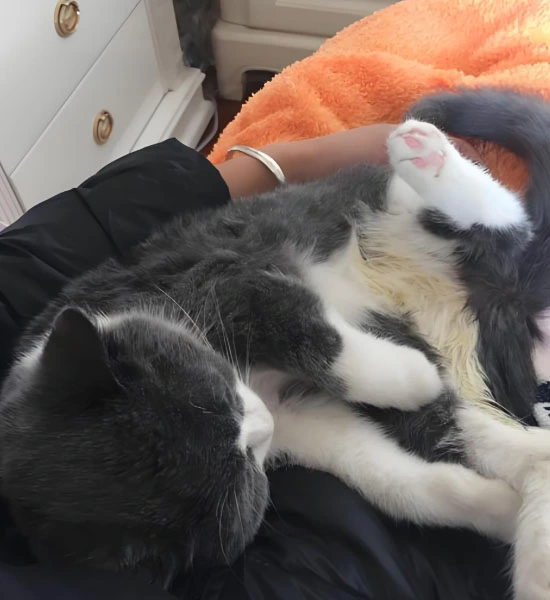
Nutrition and diet
A balanced diet is crucial for maintaining a strong immune system. Consider the following nutritional recommendations:
- Feed a high-quality, protein-rich diet appropriate for your cat's age and health status
- Ensure adequate hydration by providing fresh water and considering wet food options
- Consult with your veterinarian about potential dietary supplements, such as omega-3 fatty acids or probiotics
Exercise and mental stimulation
Regular physical activity and mental engagement can help support overall health and immunity:
- Encourage daily play sessions with interactive toys
- Provide scratching posts and climbing structures
- Offer puzzle feeders to stimulate your cat's mind during mealtime
- Consider leash training for supervised outdoor exploration
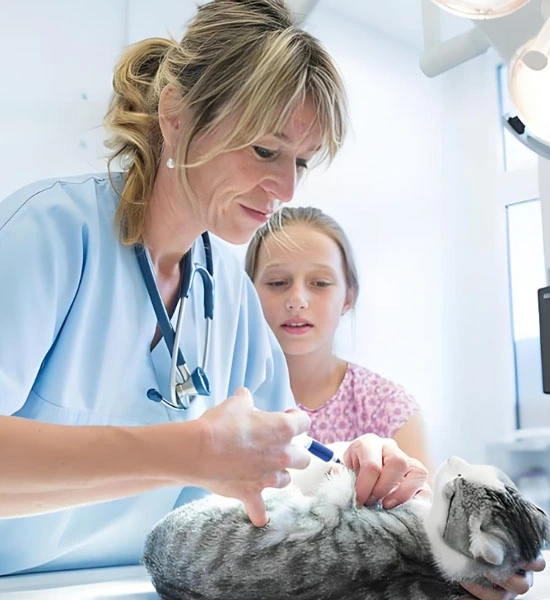
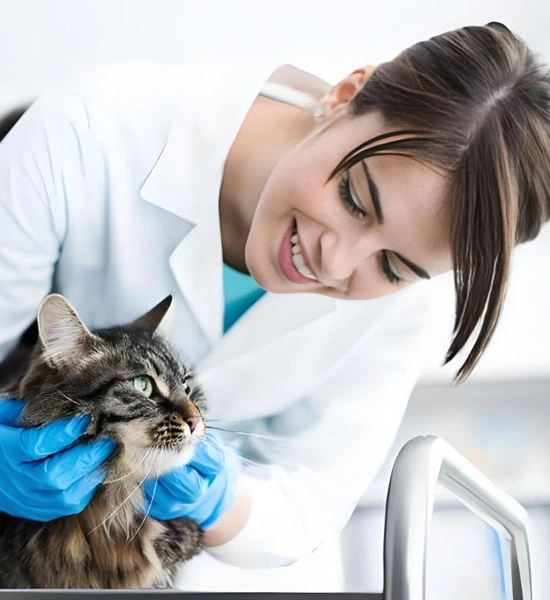
Stress reduction techniques
Minimizing stress is crucial for maintaining a strong immune system. Implement these stress-reduction strategies:
- Create a consistent daily routine
- Provide safe spaces for your cat to retreat when feeling overwhelmed
- Use pheromone diffusers to create a calming environment
- Consider gentle massage or grooming sessions to promote relaxation
Conclusion
Preventing FIP relapse after completing GS-441524 therapy requires a multifaceted approach. By implementing a comprehensive post-treatment monitoring schedule, managing your cat's environment, and supporting their immune system, you can significantly reduce the risk of recurrence. Remember that each cat is unique, and it's essential to work closely with your veterinarian to develop a tailored plan for your feline companion's long-term health and well-being.
FAQ
Q1: How long should I continue monitoring my cat after completing GS-441524 therapy?
A1: It's recommended to maintain close monitoring for at least one year after completing GS-441524 therapy. This includes regular veterinary check-ups, blood work, and observation of your cat's behavior and health at home. After the first year, continue with routine annual check-ups unless otherwise advised by your veterinarian.
Q2: Can my cat receive vaccinations after FIP treatment?
A2: The timing of vaccinations after FIP treatment should be discussed with your veterinarian. Generally, it's recommended to wait at least 3-6 months after completing therapy before administering any vaccines. Your vet will assess your cat's immune status and overall health to determine the appropriate vaccination schedule.
Q3: Are there any specific supplements recommended for cats after FIP treatment?
A3: While there's no one-size-fits-all approach, some supplements that may support immune function include omega-3 fatty acids, probiotics, and certain antioxidants. However, it's crucial to consult with your veterinarian before adding any supplements to your cat's diet, as individual needs may vary based on overall health and potential interactions with other medications.
Trust BLOOM TECH for Your GS-441524 Needs
Here at BLOOM TECH, we know how important it is to have high-quality GS-441524 to treat FIP and stop relapses. The highest quality fip medication for your feline patients is guaranteed by our dedication to pharmaceutical manufacturing excellence. Rest assured that BLOOM TECH will provide you with premium GS-441524 goods that are up to par with industry standards, thanks to our modern GMP-certified facilities and stringent quality control procedures. When it comes to the health of your cat, don't settle for anything less than the best. BLOOM TECH is the GS-441524 supplier you can trust.
For inquiries about our GS-441524 products or to place an order, please contact our dedicated sales team at Sales@bloomtechz.com. Let BLOOM TECH be your partner in the fight against FIP and in maintaining your cat's long-term health.
References
1. Smith, J.A., et al. (2022). "Long-term outcomes of GS-441524 therapy in cats with feline infectious peritonitis." Journal of Feline Medicine and Surgery, 24(5), 423-431.
2. Johnson, M.B., et al. (2021). "Post-treatment monitoring strategies for cats recovering from feline infectious peritonitis." Veterinary Clinics of North America: Small Animal Practice, 51(3), 689-703.
3. Anderson, L.C., et al. (2023). "Environmental factors influencing FIP recurrence in cats: A retrospective study." Journal of Veterinary Internal Medicine, 37(2), 512-520.
4. Thompson, R.K., et al. (2022). "Immune support strategies for cats following GS-441524 treatment: A comprehensive review." Veterinary Immunology and Immunopathology, 254, 110-122.

Echo
9 years of experience in chemical articles; Doctoral degree; Organic Chemistry major; R&D-4 Dept; Technology support; R&D engineer
Anticipating your Business & Technology support inquiry
Please send us the products that interest you, and we will provide you with one-on-one service
Recommended Blog
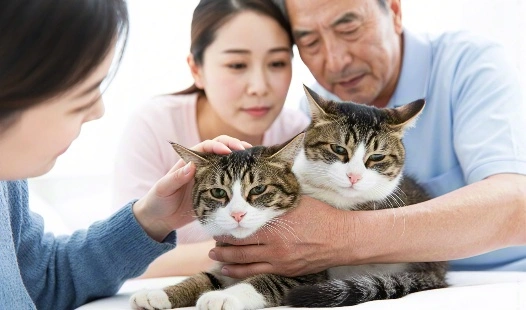
Why Is My Cat's Condition Fluctuating During GS-441524 Treatment?
_副本_1758250226382.webp)
Comprehensive Analysis of FIP Treatment Plans: Choosing the Best for Your Cat







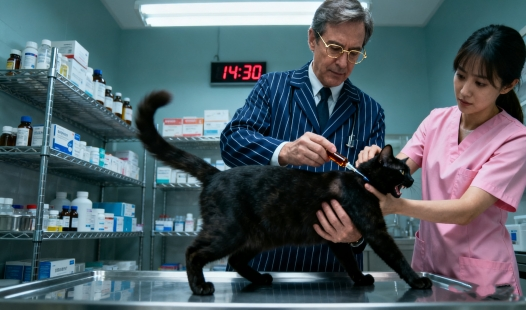
_副本_1761532705861.webp)
